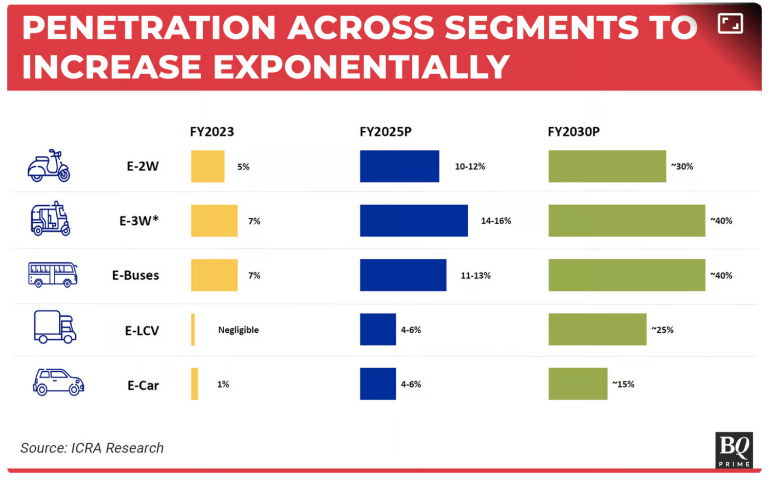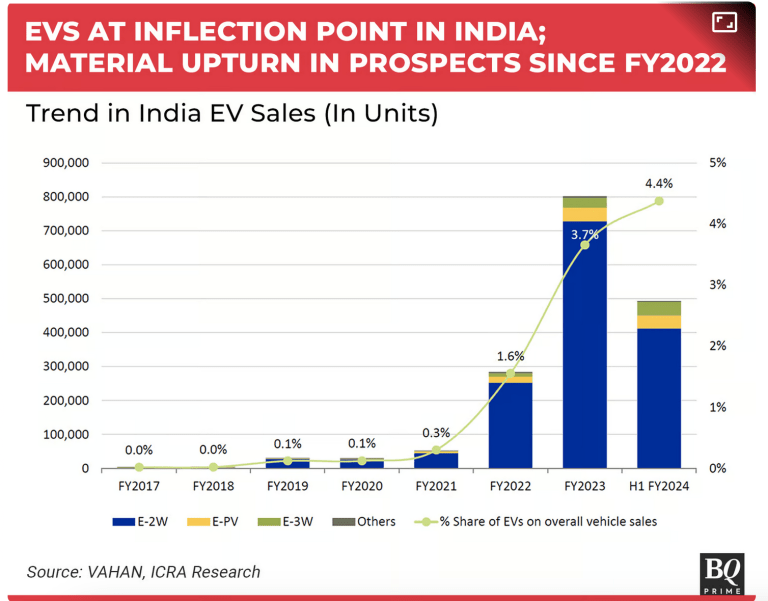
EV Adoption at an Inflection Point in India - ICRA
In recent years, the global automotive industry has witnessed a paradigm shift towards sustainable and eco-friendly transportation solutions. As countries around the world strive to reduce their carbon footprint, electric vehicles (EVs) have emerged as a key player in the transition to cleaner mobility. In India, a country known for its bustling urban centers and rapidly growing population, the electric vehicle revolution is gaining momentum, with a recent report from ICRA suggesting that EV adoption is at an inflection point.
The recent report from ICRA, a leading credit rating agency in India, provides valuable insights into the current state of electric vehicle adoption in the country. According to the analysis, India is experiencing a pivotal moment in the adoption of EVs, marking a departure from traditional internal combustion engine (ICE) vehicles. The report indicates that several factors are contributing to this shift, making it a crucial inflection point for the Indian automotive industry.
Government Initiatives:
One of the primary catalysts for the surge in EV adoption is the proactive stance taken by the Indian government. In recent years, various policy measures and incentives have been introduced to promote the manufacturing and usage of electric vehicles. Subsidies, tax benefits, and incentives for both manufacturers and consumers have created a conducive environment for the growth of the electric vehicle market. These initiatives align with the government’s broader goal of reducing air pollution and dependence on fossil fuels.
Improving Infrastructure:
Another critical aspect highlighted by ICRA is the gradual improvement in EV infrastructure across the country. Charging infrastructure has been a significant concern for potential EV buyers, but recent developments indicate a positive shift. The government and private players are investing in the establishment of a robust charging network, making it more convenient for EV users to recharge their vehicles. This infrastructure development is a crucial factor in addressing the range anxiety often associated with electric vehicles.
Changing Consumer Mindset:
ICRA’s report also points towards a changing mindset among Indian consumers. As awareness about environmental issues and sustainable living grows, more consumers are considering electric vehicles as a viable and responsible choice. The increasing popularity of EVs is not only driven by environmental concerns but also by the lower operating costs and maintenance associated with electric vehicles.
Challenges and Opportunities:
While the report highlights the positive trajectory of EV adoption, it also acknowledges the challenges that need to be addressed. Battery technology, cost concerns, and limited model options are among the factors that may impact the pace of EV adoption. However, these challenges also present opportunities for innovation and collaboration within the automotive industry, paving the way for advancements in technology and market competitiveness.
In conclusion, ICRA’s recent report provides a comprehensive overview of the current state of electric vehicle adoption in India. The combination of government initiatives, infrastructure development, and changing consumer preferences has positioned the country at an inflection point in the transition to electric mobility. As the automotive industry navigates through challenges and seizes opportunities, the future of electric vehicles in India appears promising, contributing not only to a cleaner environment but also to the evolution of the Indian automotive landscape.



